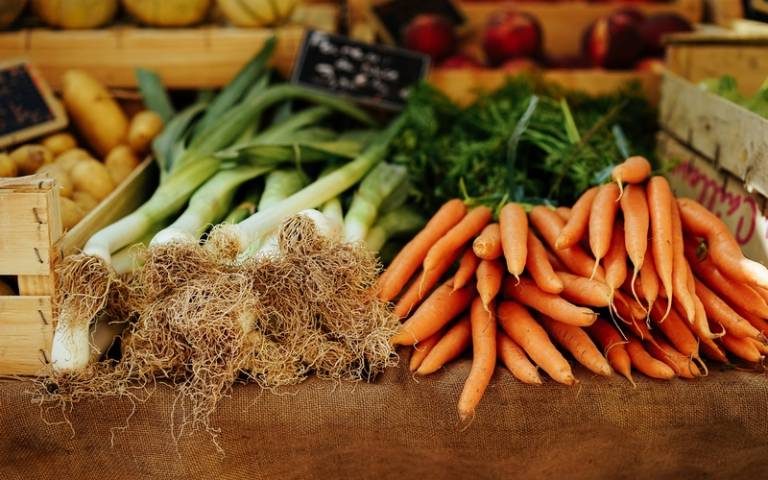Medical School teaching encourages sustainable and healthy food choices
Teaching embedded in UCL’s medical education programmes is addressing the link between sustainable and healthy living and health and disease.

8 October 2020
The Culinary Medicine in Primary Care course is an integral part of UCL Medical School’s Core General Practice course, during which Year 5 students spend 18 days in a GP practice over six weeks.
The teaching addresses aspects of the World Health Organisation’s 'triple billion' targets and the sustainable development goals, which aim to support 'universal health care' delivery and promotion of health and well-being through delivery of primary care.
“Our teaching supports students’ with patients by providing spaces for conversations about sustainable and healthy living; considering its inter-relationship with health and disease,” explains Dr Sara Thompson (UCL Primary Care & Population Health); “They also examine current evidence and its relevance to the individual patient and collaborate with the patient to explore ways to implement changes to their lifestyle.”
The course includes a one-day practical culinary medicine workshop, during which students discuss how they themselves and their future patients can reduce the carbon footprint of their food. ”Students are encouraged to buy locally sourced ingredients for their own use and to adopt seasonal eating where possible,” says Dr Thompson. “We also suggest they recommend this to their future patients, thereby engaging the public in sustainable healthy eating and well-being.”
Before the workshop, students complete self-directed online learning to introduce the topic and encourage them to reflect on and bring a primary care case to the workshop to discuss.
During workshops, students receive an introduction to the relevant evidence-base, and lectures from a multidisciplinary team including a GP, dietician and chef, as well as hands-on cooking experience in a teaching kitchen.
They also review the evidence on inclusive and affordable ways to reduce the carbon footprint of food and discuss ways of implementing these changes, such as reducing intake of red meat and dairy and shifting towards plant-based diets.
 Close
Close


